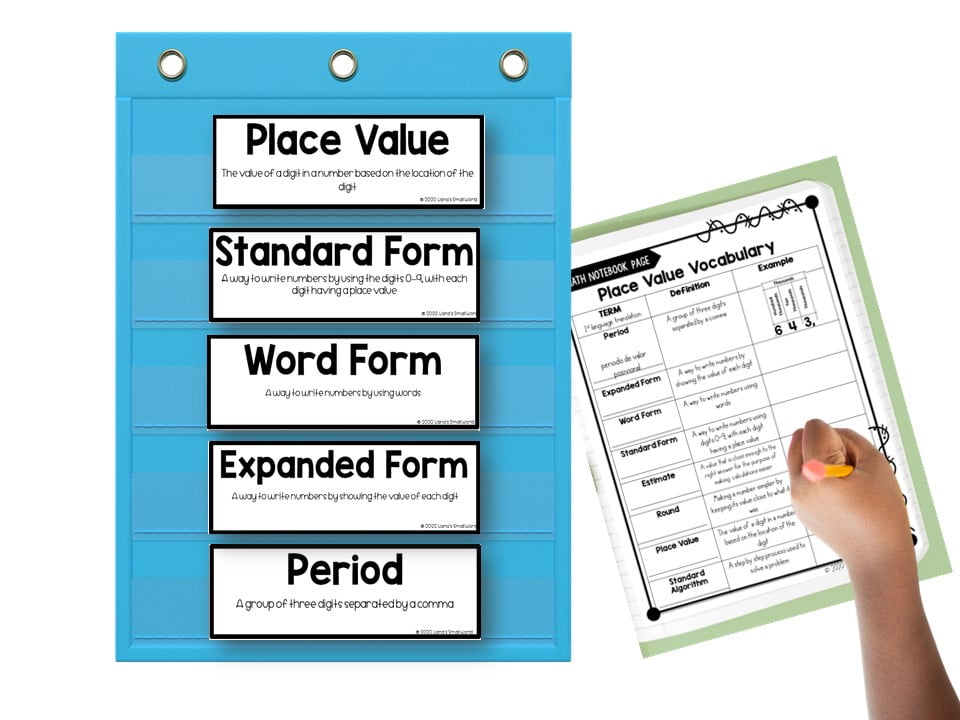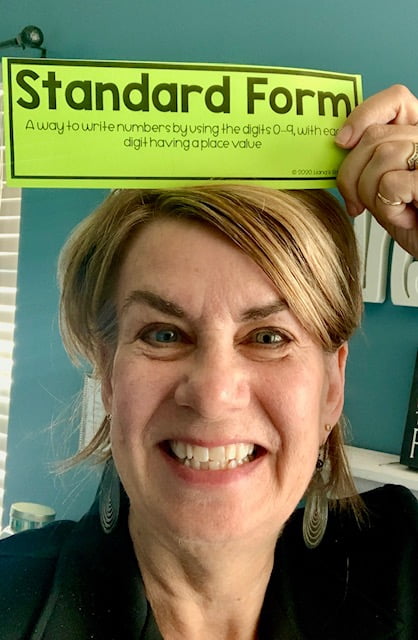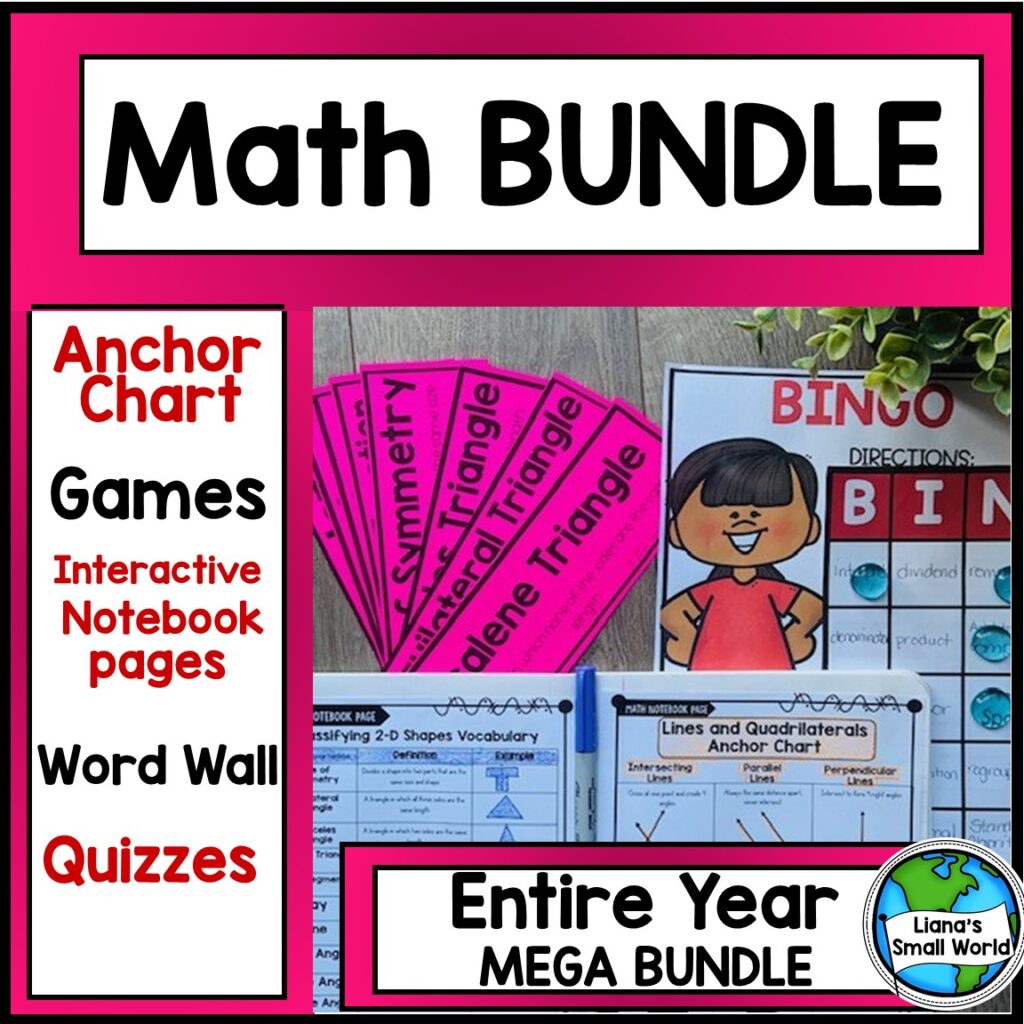If you want students who understand test questions, and solidly defend their math strategies, math vocabulary is vital. But we all know that teachers have a mile of standards they need to cover, and have kids who are already behind, so how can we EFFICIENTLY teach vocabulary without stealing time away from math concept development??
Here are three ways I do this in my regular teaching.

1. Introduce Concepts Using Correct Math Vocabulary
Reveal new words on a class word wall, and have kids record those words into a personal word wall, or interactive notebook. Have them refer to these often.
Train your students to USE these resources daily. If they stumble to recall a word, point to the word wall, or have them refer to their notes. I get it that students will take a while, writing these words at the beginning, but if you train them to get started right away, and it becomes part of the routine, it gets very fast. I do not personally grade interactive notebooks, but the way I motivate them to complete them and use them, is by giving graded activities, like pop quizzes, or daily graded work that they are ALLOWED to use their interactive notebooks for.
This makes it so easy for them to rock those assignments, so they are motivated to get it done. The goal is to have them use it so often, that by the time of the test, they won’t need it. But some teachers totally allow them to use their notebooks on the test. That is up to you.

Make Explaining your Thinking using Correct Math Vocabulary Part of your Everyday Classroom Routine.

- Any time a student gives an answer to class work, they must EXPLAIN how they know it is correct. Let me tell you, this is pretty rocky at first, so you need to gently guide them into using correct terminology. As someone who lived in a foreign country, and was occasionally berated for using the wrong words, I can tell you if you are not careful here, some kids will shut down.
- So how can you GENTLY guide students to the correct terminology?
My favorite way to be corrected, was when my mentor, would nod, and repeat my sentence, replacing my incorrect word with the correct one. Kids catch on to this and will appreciate your kindness, and try to use the correct word next time. So when your child explains how they know the 8/6 is an improper fraction, and they say because the “top number is bigger than the bottom number” – you nod in agreement, but say “Oh the numerator is larger than the denominator” As they get comfortable with this nudge, you can ask “What is the name of that “top number” again?
- Explaining should not ONLY be spoken but also written. After students get comfortable with verbal explanations, start giving them exit slips where they need to explain their thinking in full sentences. This is a great example of a time when they can use their interactive notebooks to make it feel much more comfortable.
Games with Math Vocabulary!

Games are one of my secret weapons in teaching. There is no better way to get kids engaged and motivated to understand and “dig into” the content. Math vocabulary games are no exception here. And they do NOT need to take a lot of time or prep work!

Here is one of my favorites! I simply grab several of my words from my word wall – that is the ONLY supply needed!! After mixing them up I place that word on my head so I cannot see the word but the class can. Next, I ask team one to explain the word to me. If I can figure out the term, they get a point. Then do the same for team two. If you don’t want to divide into teams you can do whole class and they can earn class points for this. My kids get a longer recess after getting ten points.
If you want to make it more fun, pretend not to understand when kids explain using incorrect terminology.
Another motivator is you can give kids 2 minutes to “study” their interactive notebooks before starting, wait until you see them pour themselves into their notebooks!!
So, by giving kids two study minutes as they enter the room (time that is often wasted anyway) and five minutes on the game (yes, you can play this entire game in 5 minutes), you can reap huge rewards for a very short amount of class time.
For ready-made resources to promote math vocabulary in the classroom, please check out the following links


What has worked for you? What are your favorite ways to promote the use of correct terminology in Math class?




0 Comments